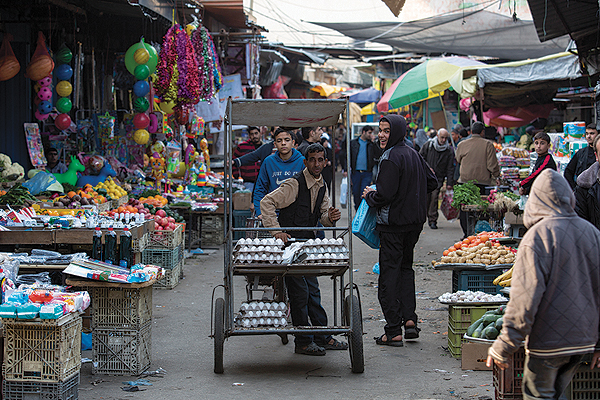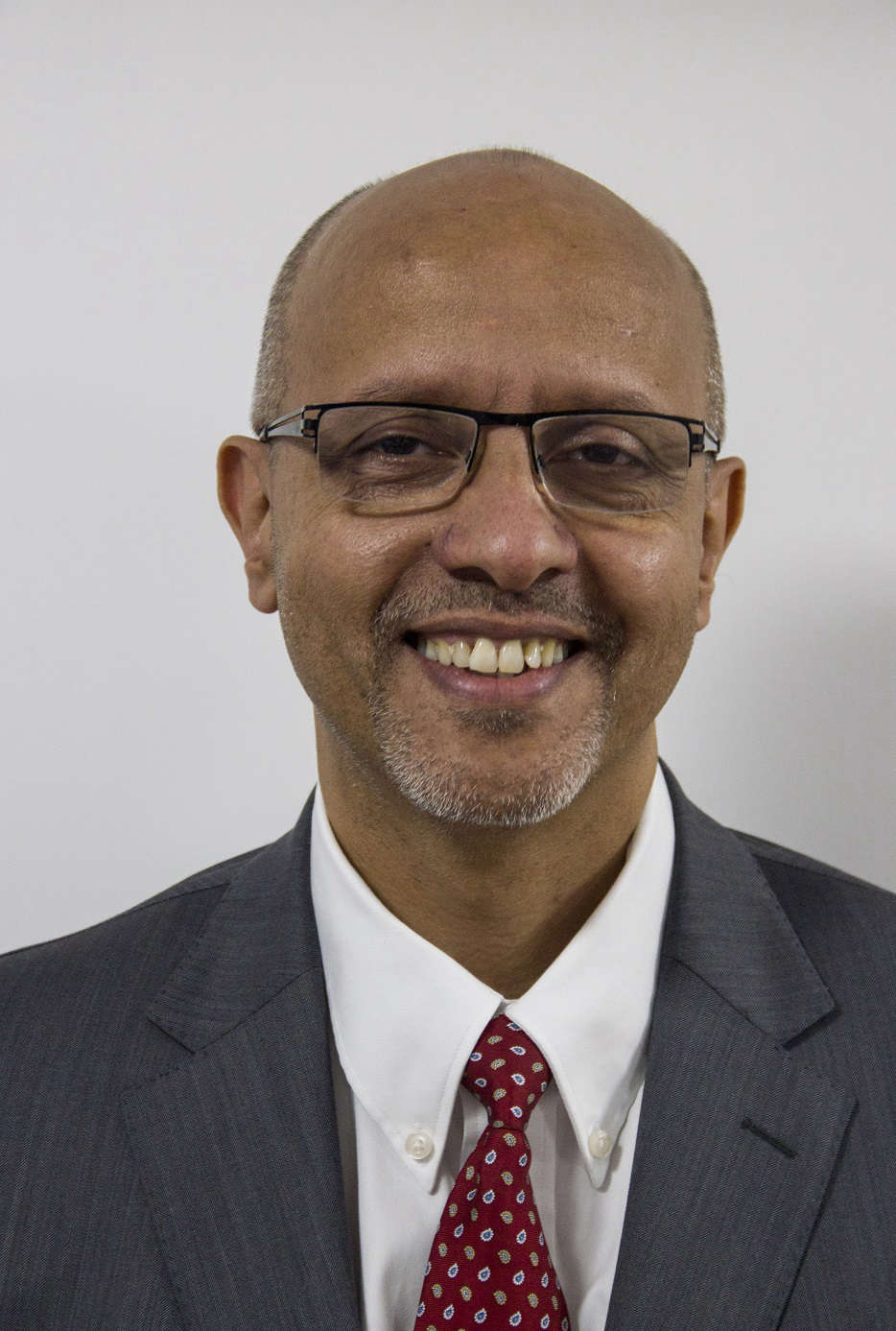
The year 2017 marks ten years of the siege of Gaza. Already weakened by years of economic blockade and isolation, the 2014 hostilities wreaked further damage on Gaza’s infrastructure, housing, and economy, with dire consequences for Palestinians in Gaza. Ninety percent of Gaza’s drinking water is unsafe for human consumption, and more than 60 percent of the population is reliant on humanitarian aid. The progress of the reconstruction effort remains far too slow due to a lack of funding and access restrictions. The UN has warned that Gaza may be uninhabitable by 2020 unless immediate action is taken. The humanitarian crisis in Gaza threatens Palestinian stability and is a serious threat to a strong and unified State of Palestine.
Since the 2014 hostilities, Gaza’s private sector is yet to recover from the extensive destruction caused by three rounds of attacks, and continues its struggle to survive the crippling decade-long economic blockade. Isolated and cut off from any supply chain, its struggle to function is compounded by the continued acute shortages in critical commodities such as electricity, water, and fuel, and by an unusual regulatory environment caused by nine years of Palestinian political split.
Very little has been done to improve Gaza’s business environment, with international efforts to sustain the unsustainable proven difficult to succeed under unchanged political conditions, except perhaps to prevent or delay the total collapse of the besieged economy. Worse, with Gaza’s reconstruction going slow and already falling three years behind schedule, only 25 percent of the estimated US$ 152 million private-sector losses sustained during the latest hostilities has been disbursed as compensation thus far.
Without any real change in the status quo, Gaza’s economic recovery remains a distant goal. If and when there is some amelioration of current economic conditions, that these improvements will be short lived and quickly overtaken by a new dose of adverse shocks. Long-term development under the circumstances remains a dream. Inaction will only lead to greater hardship resulting in the exacerbation of higher rates of unemployment, unbearable poverty, food insecurity, greater environmental degradation, institutional decay, and other unforeseen consequences.
Already as one of the most densely populated areas in the world, with a population density of 5,154 persons per square kilometer, high population growth combined with restrictions on movement, suggest that the only hope for a different and better economic future for Gaza lies in its private sector’s ability to become the driver of economic change and productive employment. How this can be successfully delivered remains a daunting challenge and requires enabling democratic and inclusive governance in place, as a matter of urgency.
On assessment of Gaza’s current business environment, a picture is revealed of an underdeveloped and increasingly weakened private sector that has been operating for years under a considerable amount of internal and external stress. Although there are substantial differences in the resilience of various Gazan enterprises, depending on factors such as their size, location, and sector, it must be acknowledged that all have been adversely impacted, in one way or another, by repeated and man-made shocks, driven by political decisions shocks.
Furthermore, analysis of the sector demonstrates a very poor business environment that impacts all aspects of business operations: from investment to production, and to the delivery of the final output. In such a constrained economic climate, the degree of risk and uncertainty is extremely high, the cost of doing business is discouraging, and the level of confidence amongst private-sector agents is correspondingly low.

Under the status quo, and over the last decade, the international community has been applying an incremental, project-based approach to providing assistance to Gaza’s private sector to ensure its continued survival. Donor investments and technical assistance programs have been provided, both unilaterally and multilaterally, to improve private-sector conditions. Despite this, and as crucial as international aid has been, it has not succeeded in bringing about a durable positive change in Gaza’s ailing private sector.
What is now needed is a long-term strategic shift in the way the international community deals with Gaza’s economic obstacles, an approach under which the short-term incremental measures represent only one component, not the entire gamut. In this alternative approach, Gaza needs to be considered for its potential rather than as a humanitarian burden. This new approach should be driven not only by the fast deteriorating socioeconomic and humanitarian conditions, but also by the strong determination to prevent an additional humanitarian disaster in the already troubled security context in the region. It is critical that this long term strategic shift be accompanied, optimally, by the lifting of the blockade and, sub-optimally, by a transformational review of policies and instruments, with the intent of enabling free movement of people and goods, productivity, employment and free competitive and unimpeded economic activities.
In a recent study, UNDP proposes an alternative approach consisting of three inseparable components, all of which are equally important and should be pursued concurrently:
(1) Continued provision of short-term support to Gaza’s private sector in order to address urgent needs as identified by business owners. To be successful, these short-term measures should not be stand-alone steps, but part of a strategic look to Gaza’s economic future led by its private sector.
(2) The design of a strategic plan for medium- and long-term growth and development of Gaza’s economy grounded in an in-depth analysis of the business climate as well as Gaza’s productive and service sectors. The outcome of such an analysis would then constitute the core of a comprehensive strategy that can be later utilized as a basic guide for the optimal targeting of future national and international Investments in Gaza. (3) A persistent effort by the international community to stabilize the political context in Gaza. For short-term intervention measures to become more effective, and for a long-term strategic plan to be implemented, a mechanism to ensure long-term stability of political and security conditions must be in place.
Undoubtedly, this last component of the proposed approach is the most challenging, but it is indispensable. If the root cause of Gaza’s economic crisis, including its highly depressed business setting, is political, then this is where the solution lies. Unfortunately, very little success has been achieved on this front.
Under the prevailing conditions, the future of Gaza and its inhabitants is unacceptably bleak. When the UN is already predicting Gaza to be unlivable by 2020, those with a vested interest in the future of a fragmented Palestinian state should take a moment for serious pause.
» Roberto Valent is the Special Representative of the Administrator for UNDP’s Programme of Assistance to the Palestinian People (UNDP/PAPP). Prior to his current position, Mr. Valent was the UN Resident Coordinator and UNDP Resident Representative in El Salvador and Belize. From 2007–2010, Mr. Valent was Deputy Special Representative at UNDP/PAPP. From 2005–2007 he was Deputy Country Director in the Democratic Republic of Congo, and before that he was assigned as Deputy Resident Representative in Sudan from 2002–2005. Mr. Valent began his career with UNDP in 1995 in Albania. An Italian national, he holds a BA and an MA in political sciences from Bologna University, Italy, followed by another MA in international relations from Sussex University, United Kingdom.


